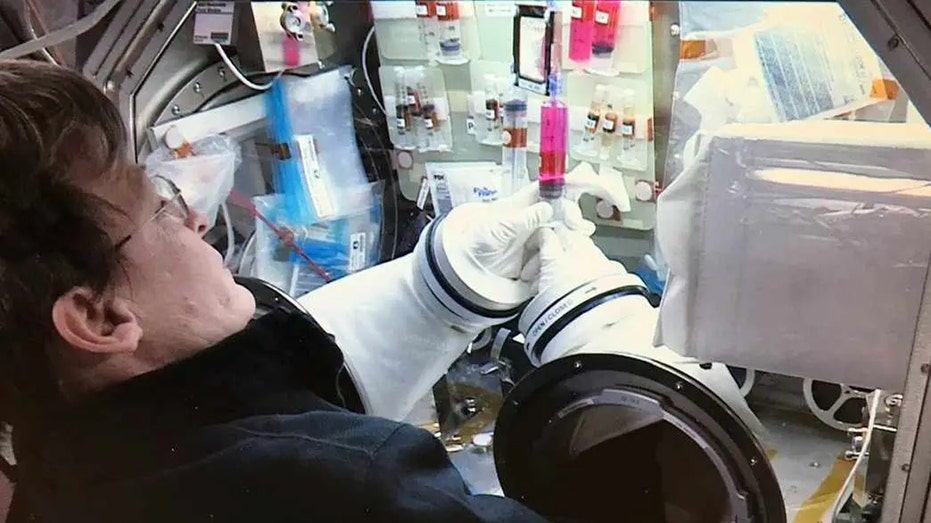Physical Address
304 North Cardinal St.
Dorchester Center, MA 02124
Physical Address
304 North Cardinal St.
Dorchester Center, MA 02124

Medical science has always been driven by innovation and the quest for groundbreaking discoveries that can transform patient treatment. In recent years, an unexpected source has emerged as a catalyst for revolutionary advancements in medicine: space. Research conducted on the International Space Station (ISS) has provided invaluable insights into various aspects of human health, paving the way for transformative medical breakthroughs that have the potential to benefit people on Earth.
The ISS, orbiting above the Earth’s atmosphere, offers a unique environment characterized by microgravity and exposure to radiation. These distinct conditions have presented scientists with a wealth of opportunities to gain new perspectives on human health and explore innovative treatment options.
One of the most significant effects of medical research conducted on the ISS is the potential to revolutionize cancer treatment. Scientists have been able to observe the behavior of cancer cells in microgravity, providing valuable insights into their mechanisms and interactions. This newfound understanding has led to the development of more effective drug formulations, such as the widely successful Keytruda, which can be administered through injections rather than lengthy intravenous infusions. This streamlined approach simplifies the treatment process, allowing for faster and more direct administration of medications.
The effects of microgravity and radiation on the human body have also shed light on the processes of aging and related diseases. Researchers have discovered that these conditions mimic certain aspects of aging, offering a unique opportunity to study age-related conditions and develop targeted therapies. Stem cell research conducted on the ISS has shown promising results in accelerating cell growth, opening up new possibilities for treating a wide range of diseases. The ability to rapidly multiply cells from a single donor has the potential to greatly enhance accessibility to life-saving treatments.
Stroke, a leading cause of disability and death worldwide, has been a major focus of medical research on the ISS. Scientists have been exploring ways to improve stroke treatment by culturing cells in microgravity, as the absence of gravity provides a different stimulus for cell growth. The insights gained from growing cells in space have the potential to lead to more effective treatments for stroke patients, addressing a critical medical need.
Another significant impact of medical innovation in space is the advancement of personalized medicine and drug testing. Scientists have utilized 3D tissue models created in space to test the effects of various drugs on specific tissues, such as breast tissue injected with cancer cells. This approach enables more targeted and efficient drug development, potentially leading to more effective treatments for diseases like Parkinson’s and brain cancer.
While these medical innovations are still in the early stages of research, their potential impact on patient treatment is immense. The discoveries made on the ISS have opened up new avenues for medical advancements and the development of innovative therapies. Continued funding and access to the ISS will expedite the translation of these discoveries into practical applications, addressing the urgent needs of patients awaiting life-saving treatments.
As the field of medicine continues to push the boundaries of innovation, the role of space-based research in revolutionizing patient care cannot be understated. The unique environment of the ISS has provided scientists with unprecedented opportunities to explore the intricacies of human health and develop groundbreaking medical solutions. The future holds great promise as we harness the power of space to unlock new frontiers in medicine.
The groundbreaking medical innovations discovered in space have had a profound effect on patient treatment on Earth. These transformative advancements have the potential to revolutionize various aspects of healthcare and improve the lives of countless individuals.
The improved understanding of cancer cells and their behavior in microgravity has led to significant advancements in cancer treatment. Scientists have been able to develop more effective drug formulations, such as Keytruda, by observing protein behavior in a weightless environment. This has resulted in the development of targeted and more efficient treatment options, simplifying the administration process and potentially improving patient outcomes.
The insights gained from studying the effects of microgravity and radiation on the human body have the potential to revolutionize the treatment of age-related diseases. Researchers have discovered new possibilities for developing targeted therapies and have shown promising results in accelerating cell growth through stem cell research. This opens up avenues for treating various diseases and offers hope for improved patient outcomes.
Medical research conducted on the ISS has provided valuable insights into stroke treatment. By culturing cells in microgravity, scientists have gained a deeper understanding of cell growth and behavior, potentially leading to more effective treatments for stroke patients. These advancements have the potential to reduce disability and improve the quality of life for stroke survivors.
The development of 3D tissue models in space has revolutionized personalized medicine and drug testing. By testing the effects of drugs on specific tissues, scientists can develop more targeted and efficient treatment options. This has the potential to improve outcomes for patients with diseases such as Parkinson’s and brain cancer, as well as streamline the drug development process.
The medical innovations discovered in space have opened up new possibilities for patient treatment and have the potential to transform healthcare as we know it. Continued research and access to the ISS will further accelerate the translation of these discoveries into practical applications, benefiting patients worldwide.
As we continue to explore the frontiers of space, the impact on medical science cannot be underestimated. The unique environment of the ISS has provided scientists with invaluable insights and opportunities to develop innovative solutions for patient care. The future holds great promise as we harness the knowledge gained from space-based research to improve the lives of individuals around the globe.
If you’re wondering where the article came from!
#